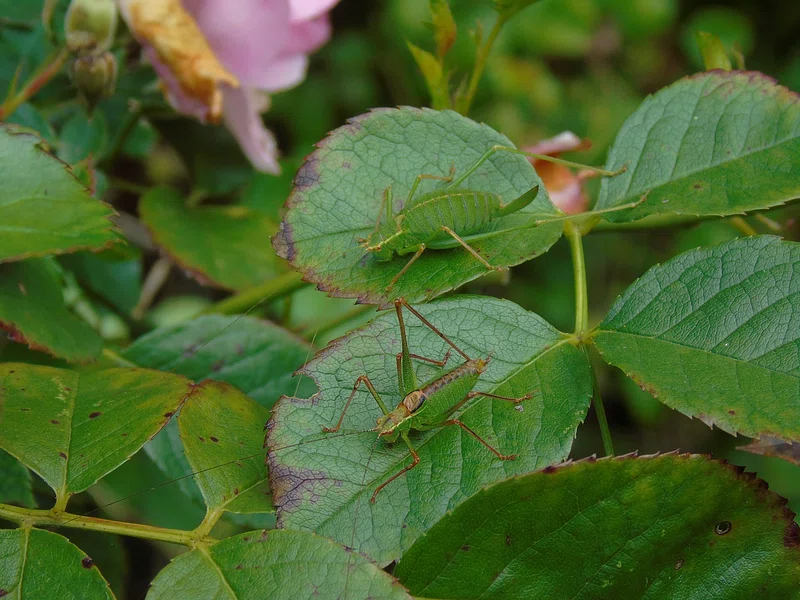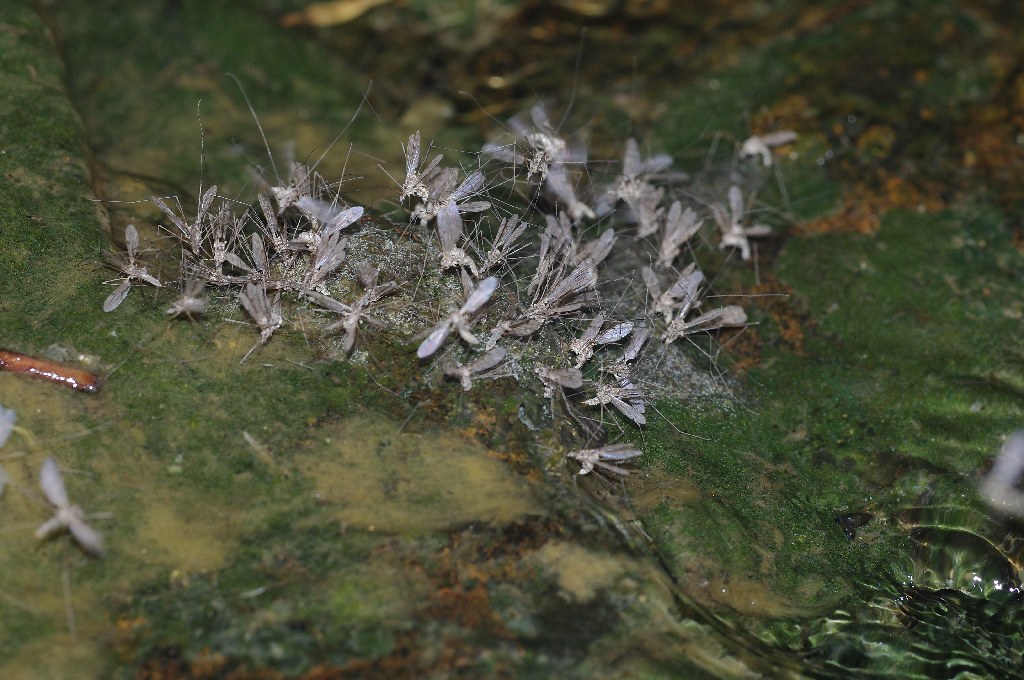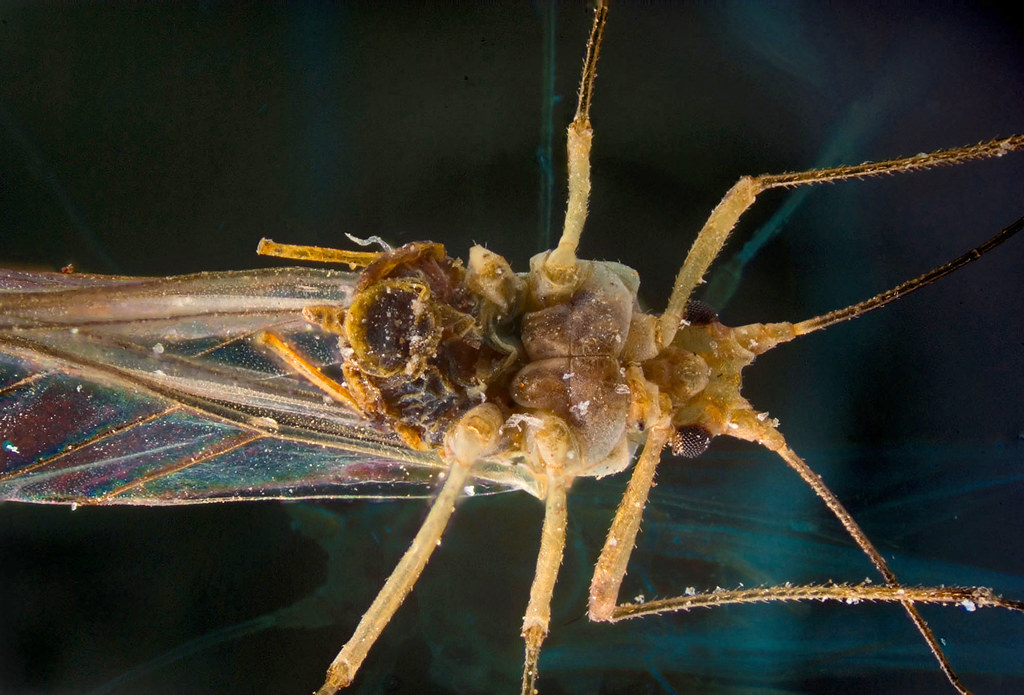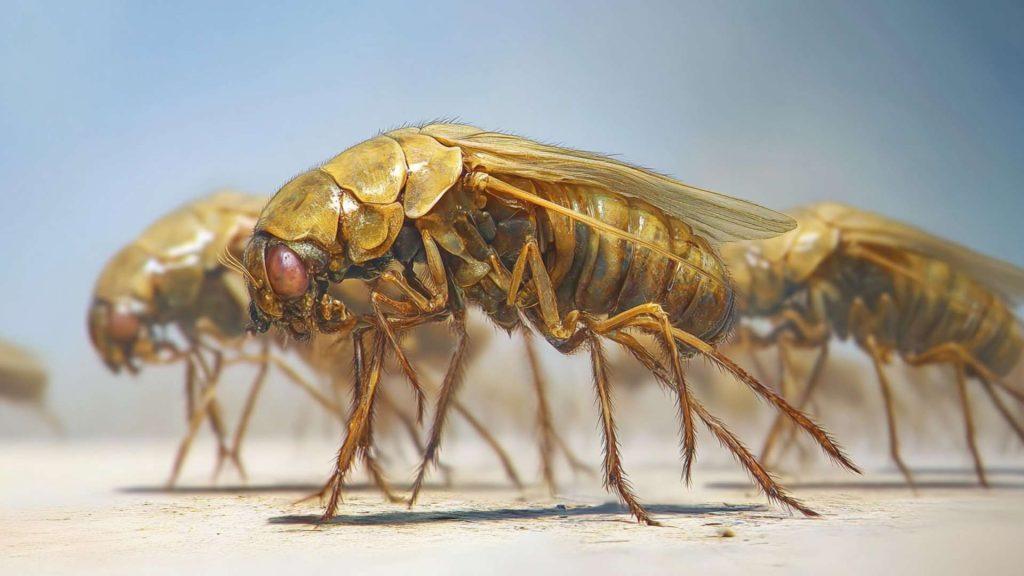Gnats may seem like harmless, tiny pests, but when they invade a home, they can cause more damage than expected. Although they are not known to carry diseases like mosquitoes or cause painful bites, their presence can lead to other issues that homeowners should be aware of. Understanding the potential damage caused by gnats and how to get rid of them is essential for maintaining a healthy living space.
 To protect your houseplants from gnat damage, do not water them excessively and allow the soil to dry between waterings. Using sticky traps around your plants can also help catch adult gnats before they can lay eggs.
To protect your houseplants from gnat damage, do not water them excessively and allow the soil to dry between waterings. Using sticky traps around your plants can also help catch adult gnats before they can lay eggs.

 Maintaining a clean home environment by wiping down surfaces, fixing leaks, and taking out the trash regularly can reduce the chances of gnats settling in your home.
Maintaining a clean home environment by wiping down surfaces, fixing leaks, and taking out the trash regularly can reduce the chances of gnats settling in your home.
Damage to Houseplants
One of the most common damages caused by gnats, particularly fungus gnats, is to houseplants. These tiny pests are drawn to the moist soil in plant pots and lay their eggs. When the larvae hatch, they feed on the roots of the plants and infect them. To protect your houseplants from gnat damage, do not water them excessively and allow the soil to dry between waterings. Using sticky traps around your plants can also help catch adult gnats before they can lay eggs.
To protect your houseplants from gnat damage, do not water them excessively and allow the soil to dry between waterings. Using sticky traps around your plants can also help catch adult gnats before they can lay eggs.
Contamination of Food
Fruit gnats, often called fruit flies, are drawn to ripening or decaying food, particularly fruits and vegetables. They can quickly multiply in your kitchen, contaminating exposed food items. Once they infest, they lay eggs in the food, making it unfit for consumption. This can result in wasted food and the spread of bacteria. To prevent gnats from contaminating your food, keep fruits and vegetables in airtight containers. Dispose of overripe food promptly and clean up any spills to avoid attracting gnats.
Gnats in Drains and Plumbing
Gnats, especially drain flies, can cause issues in your plumbing system. They thrive in moist areas, such as kitchen and bathroom drains, where organic material builds up. Gnats can lay eggs in the sludge inside your pipes, and over time, this can lead to clogged drains or unpleasant odors in your home. Clean your drains regularly with hot water, vinegar, or a drain cleaner, which can help prevent gnats from settling in your plumbing. This is an important step in reducing gnat populations and keeping your home free from damage caused by their breeding habits.Damage to Home Environment
While gnats do not typically cause structural damage to homes, their presence can still be disruptive. The constant buzzing and swarming of gnats, especially in kitchens and bathrooms, can make daily activities frustrating. In larger infestations, gnats can significantly reduce your home’s comfort, making it difficult to enjoy your living space. They can also leave dead insects and droppings around, which can be unsightly and require more frequent cleaning. Maintaining a clean home environment by wiping down surfaces, fixing leaks, and taking out the trash regularly can reduce the chances of gnats settling in your home.
Maintaining a clean home environment by wiping down surfaces, fixing leaks, and taking out the trash regularly can reduce the chances of gnats settling in your home.
How to Get Rid of Gnats in Home
The key to getting rid of gnats in your home is addressing their breeding grounds. Since gnats are attracted to moisture and food, you should focus on eliminating these sources:- Remove overripe fruit: Keep food sealed and store perishables in the fridge.
- Fix leaks: Gnats love moisture, so repair any leaks in your kitchen, bathroom, or basement.
- Clean drains: Use vinegar or drain cleaner to kill gnat eggs and larvae hiding in your drains.
- Dry out houseplant soil: Don’t overwater your plants, and let the soil dry between waterings to discourage fungus gnats from laying eggs.
Gnat Infestations: Myths & Facts
| Myth | Fact |
| Gnats are harmless and don’t cause damage. | Gnats can harm houseplants, contaminate food, and clog drains with their breeding. |
| Overwatering plants won’t attract gnats. | Fungus gnats thrive in overly moist soil, making houseplants a prime location for infestations. |
| Gnats only come into dirty homes. | Gnats are attracted to moisture and food, which can be found even in clean homes if leaks or ripe fruits are present. |
| Using vinegar traps alone solves the problem. | While vinegar traps help catch adult gnats, addressing breeding grounds like drains and plant soil is crucial to stop infestations. |
| All gnats are the same. | Different types of gnats, such as fruit flies, drain flies, and fungus gnats, each have unique breeding habits and require targeted treatment methods. |


